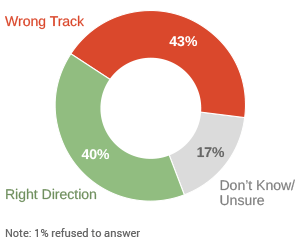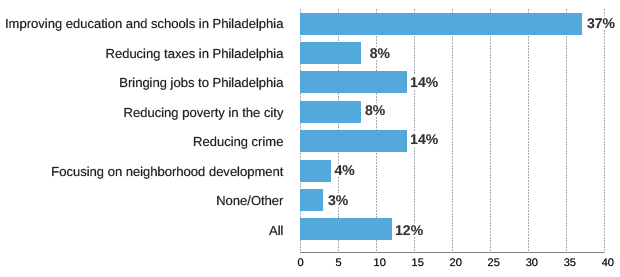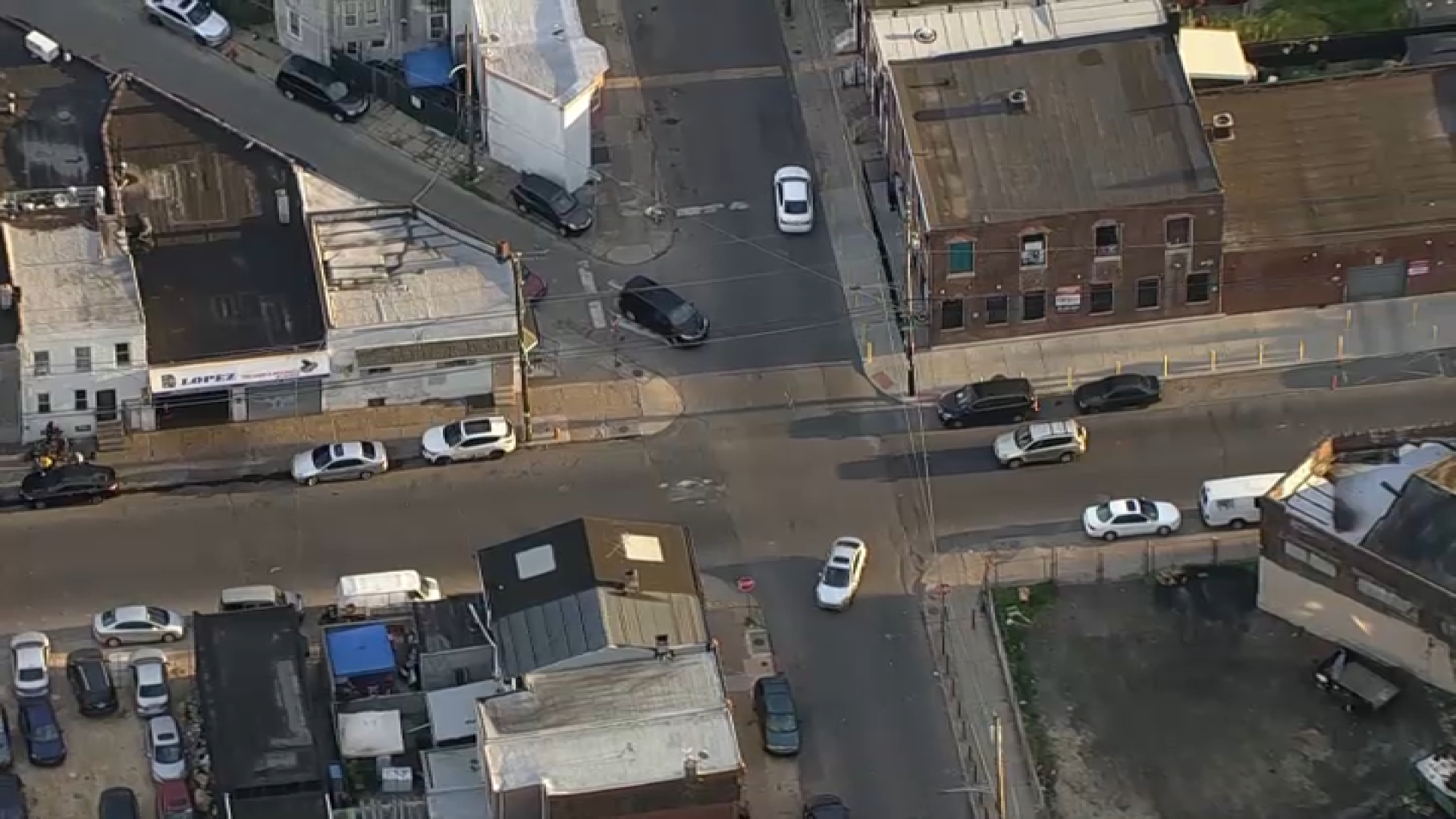Voters planning to cast a ballot in next week's Democratic primary are mixed on whether Philadelphia is headed in the right direction, a new poll conducted by NBC10 and our partners found.
In the survey of 600 likely voters, commissioned by NBC10/Telemundo62, The Philadelphia Inquirer, Daily News and Philly.com, 43-percent feel the city is off-track, while 40-percent say things are trending up.
Do you feel things in Philadelphia are heading in the right or wrong direction?

Conducted: May 9-11, 2015
Not surprisingly, improving education is the single overwhelming important issue with 37-percent of those polled saying it will decide who they vote for on Tuesday. It's an issue that could also be weighing on citizen's perception of the city's future.
“That number is more indicative of the right track, wrong track," said Richardson Dilworth, professor of political science and Director of Drexel University's Center for Public Policy. If the name sounds familiar, it's because his grandfather, with whom he shares a name, served as mayor and district attorney in the late 1950s.
“It’s hard to win on education," he said. "Whoever gets elected is going to do so with a lot of expectations to fix education, but there might not be a lot that they’ll be able to do.”
Local
Breaking news and the stories that matter to your neighborhood.
Bringing in new jobs and reducing crime — which both tied for the second deciding issue at 14-percent — were surprisingly low, Dilworth felt.
What single issue is most important to you that will determine your vote for mayor and city officials on election day?

Conducted: May 9-11, 2015
Geoff Kees Thompson, chair of the progressive political action committee 5th Square, believes the split image points to a shift in who’s moving into the city and getting involved.
“New Philadelphians seem to think that the city is changing for the better, while old Philadelphians have a more cynical view of where things stand," he said. Thompson moved to the city 10 years ago and says he’s probably squarely in the new Philadelphia set.
"I think the old versus new is a big factor. And I think that so many people are fed up with the leadership in the city,” Thompson said citing frustrations with Philadelphia City Council.
When it comes to likability, most of the well-known candidates scored a high favorable result and a few had nearly equally high unfavorability ratings.
There was one person, however, who outpaced all six Democratic mayoral candidates: Philadelphia Police Commissioner Charles Ramsey. The commissioner scored a 78-percent favorable rating with white men and black women having the highest opinion of him.
Ramsey eclipsed Mayor Michael Nutter, former Mayor and Governor Ed Rendell and School Superintendent Dr. William Hite as well, the poll found.
Despite his positive public persona, national stature and a large reduction in murders and other violent crime in Philadelphia, the question of keeping Ramsey as part of a new administration is one that has divided the candidates.
The ratings can’t settle well with candidate Anthony Hardy Williams. Last week, he said he would not rehire Ramsey if elected mayor. The decision, which he later doubled down on, led to backlash from Nutter essentially calling the candidate an idiot.
David Thornburgh, president and CEO of the government watchdog group Committee of 70, questions whether Williams would have made the same mistake knowing how well-liked Ramsey is.
“If these poll results are sound, then it would suggest there wouldn’t have been an upside to the decision he made,” Thornburgh said.
How much does favorability matter? Thornburgh says typically it means more for incumbent politicians and although there are not true incumbents in the race, he said candidates like Jim Kenney, Lynne Abraham and Williams have long-standing political careers and are known to the public.
“There are not any incumbents here, but many have long-standing records. So they’re incumbents in a sense,” he said.
So who would these likely voters cast their vote for right now if it was primary day? There are some surprising results. See the full report and all the data in our in-depth follow-up report.



